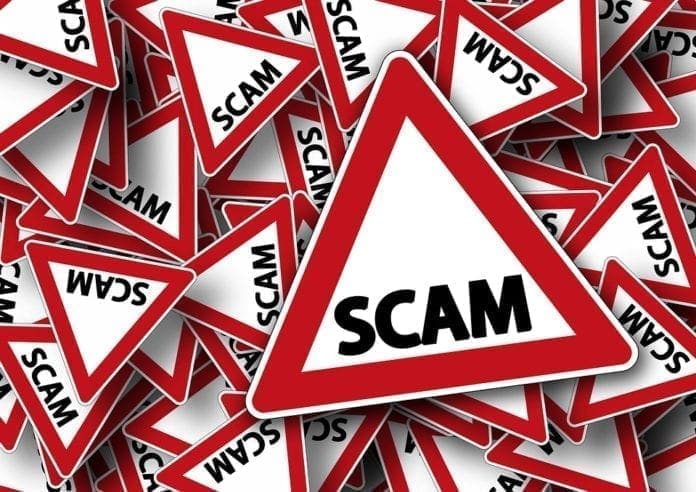We are facing a health crisis like most of us have never seen. I wasn’t around when polio struck fear in the hearts of millions in the early 1950s. The H1N1 flu seemed far-removed. This crisis – the novel Coronavirus and COVID-19 – is everywhere. We are afraid. Some are panicked. We are searching for answers, for cures, for treatments. Many are desperate. We are a compassionate nation, too, so we are giving to help others. All of which makes us extremely vulnerable and susceptible to being scammed.
One would think that even the lowest of the low would have some form of decency in the midst of an emergency of this magnitude. Do not believe that for one minute!
Have you heard of ‘Silver Solution’? This product was sold on a televangelist’s website and was touted as a possible cure on the program. An FDA warning prompted the removal of the product. In regard to the efficacy of colloidal silver, the article states, “For the past two decades, the FDA’s message has been clear: Silver doesn’t work to combat serious diseases. Over-the-counter drugs that contain colloidal silver ingredients “are not generally recognized as safe and effective.” According to the National Institutes of Health, very little evidence backs up the health-related claims of silver. “Colloidal silver can be dangerous to your health,” the NIH says. Another person promoted their silver toothpaste as a cure. Other companies are promoting teas, tinctures and essential oils as possible cures or treatments. (1) Do you think that if a cure was this readily available that we’d see the illness and deaths that we’re seeing?
Scam Phone App
There is a scam phone app that is advertised to track the spread of the coronavirus and COVID-19. You load the app and when you click on, you are hit with ransomware. This means your information is being held hostage and the scammer wants money or Bitcoin. (2)
What about supplies? Online sellers are claiming to have cleaning supplies, protective gear and other sought-after goods. People place an order and never see the merchandise. Check out the seller. Look for them online and look for reviews or complaints. (3)
Fake charities are a huge source of fraud. If you want to donate to ease some of the suffering, do your homework. Is it a legitimate charity? Make sure you’re not throwing your money at a scammer. Can you donate goods (chairs, water, personal care items) to local organizations or homeless advocates?
Emails, Too
Phishing emails reportedly from the World Health Organization encourage you to open a link for important safety information. Clicking on the attachment loads one malware package that tries to steal banking information or another which counts keystrokes to try to steal login credentials. These emails look real….but they’re not.
Price gouging frequently occurs during emergencies. Report any incidents of price gouging to your state’s Attorney General’s office.
The U.S. Secret Service warned the public, “Coronavirus is a prime opportunity for enterprising criminals because it plays on one of the basic human conditions….fear.”
Please be cautious. There are no miracle cures or treatments at this time. Protect yourself as much as possible from the virus and protect yourself from scammers.
Stay safe. Be well. Wash your hands.


